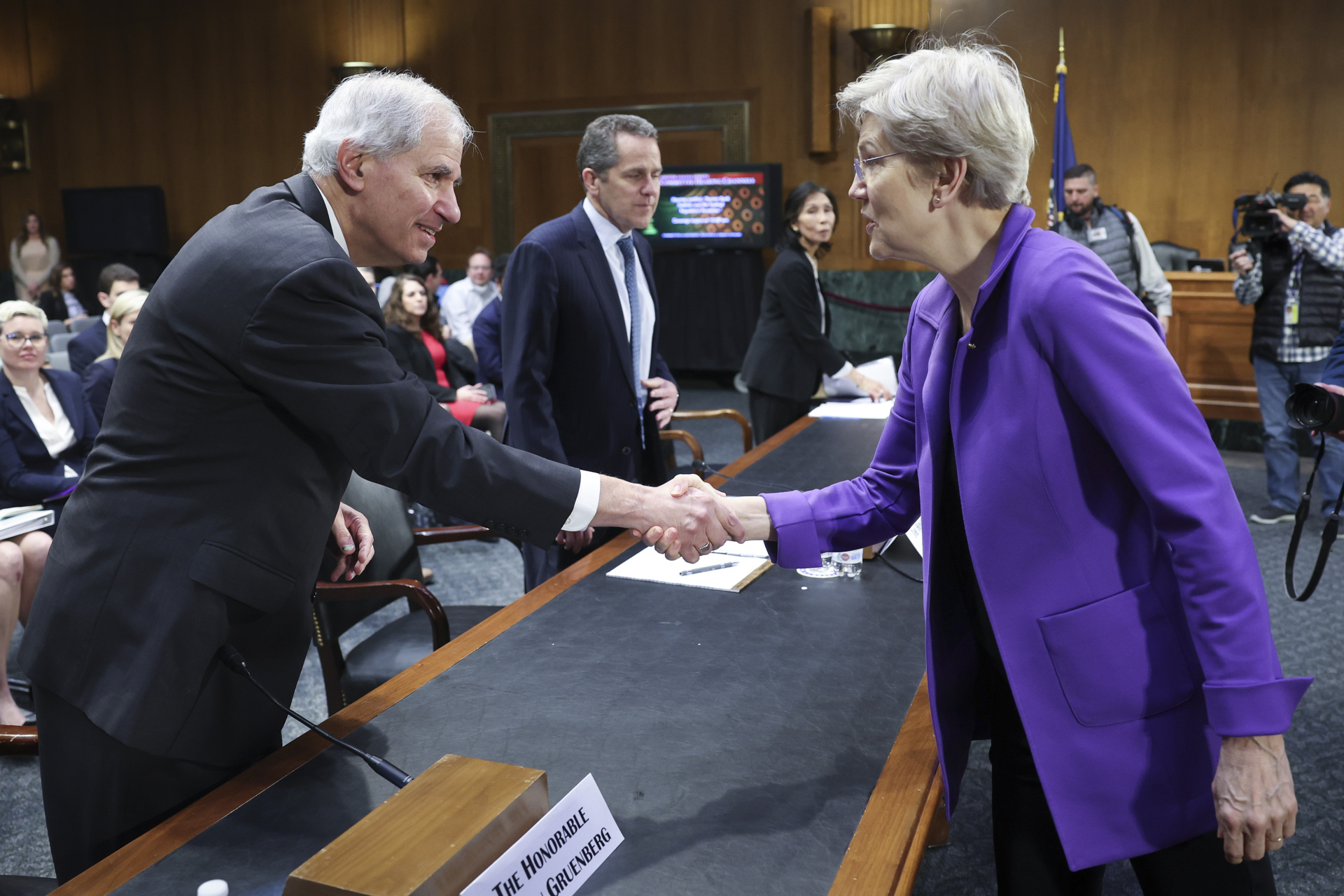Everyone Hates Bank Failures…
If there is one thing that today’s Senate Banking Committee panel hearing made clear, it is that senators really do not like bank failures.
Many appeared to regard the failure of Silicon Valley Bank (SVB) as evidence that bank regulations or bank supervisors were inadequate for the task. The Republicans tended to take take the position that the problem was a failure of supervision while the Democrats mostly blamed insufficiently restrictive regulation, repeatedly pointing to bipartisan changes to the Dodd-Frank Act made during the Trump administration.
“Our regulators appear to have been asleep at the wheel,” Sen. Tim Scott (R-SC) said.
Sen. Elizabeth Warren (D-MA) said the problem was that regulators had “burned down dozens of safeguards that were meant to stop banks from making risky bets.”
Both sides, of course, were very disapproving of the management of Silicon Valley Bank.

Federal Deposit Insurance Corporation (FDIC) Chairman Martin J. Gruenberg (left) greets Sen. Elizabeth Warren (D-MA) prior to giving testimony before the Senate Banking Committee on March 28, 2023, on the topic of “Recent Bank Failures and the Federal Regulatory Response.” (Win McNamee/Getty Images)
The witnesses before the panel were not too inclined to disagree with the general principle that the failure of Silicon Valley Bank was also a failure of bank regulation, although they understandably pushed back on assertions that their own agencies had fallen down on the job. All were appointed by the current occupant of the White House and, not surprisingly, appeared to agree with the argument of the panel’s Democrats that stricter rules were needed.
…But Banks Should Be Allowed to Fail
No one appeared the question the premise that the failure of Silicon Valley Bank is an indictment of the system. Quite obviously, the failure is clearly a sign of management failure. The shareholders and bondholders cannot be happy that they have been wiped out by the mismanagement of risk at the bank. Management itself no doubt believes that it probably should have done things differently, at least when it comes to judging how stable the deposits were.
But is it the purpose of bank regulation to ensure that no banks fail? That is not how we think about the non-financial sector of the economy. Businesses fail constantly. We have a large bankruptcy code and an entire court system to handle bankruptcies, which are often the result of business failures. Among tech founders, failure is taken as a right of passage.
The traditional view of bank regulation was not that it was a guard against bank failure but a system of limiting the damage of bank failure. The role of supervisors was not to order banks to adopt certain views of risk but to advise them on inadequate controls or overlooked weaknesses. The testimony at Tuesday’s hearing made it very clear that bank regulators did exactly this.
Even the regulatory edifice constructed by the Dodd-Frank Act had as its central premise the idea that large financial institutions would fail. The goal was to put in place the appropriate safeguards and authorities so the inevitable failures could be resolved in an orderly way. One of the key provisions in Dodd-Frank created what is called the “orderly liquidation authority.” Another provision requires the largest banks to have “living wills” that explain how they can be wound down in the event of a failure.
In a system of competitive banking, there will always be banks that misjudge the risks they face, and sometimes this will mean they fail. One of the advantages of having competitive banking is that various bankers get to put their conflicting ideas about the economy and finance into practice.
James Bianco of Bianco Research had an important tweet on this theme on Tuesday:
My take on the banking hearings happening right now.
There are 4,000+ banks in the US. Some are flying closer to the sun than others. This is always the case. Not every bank is healthy; not every bank is sick.
So, when you jack rates 500 bps over one year, those closest to the…
— Jim Bianco biancoresearch.eth (@biancoresearch) March 28, 2023
Treasury Finds Its Line
The Treasury Department appears to have found a way of threading the needle when it comes to explaining how even though it is not explicitly backing all deposits in the banking system, it might back deposits of a failed bank again.
“They are tools we would use again to ensure that Americans’ deposits are safe,” Nellie Liang, the Under Secretary for Domestic Finance at the Treasury Department, said.
Interestingly, she didn’t say the words “if warranted”—even though these words were included in the text of her prepared remarks.
In any case, it was a marked improvement on the confused and conflicting presentations from Treasury Secretary Janet Yellen last week.

COMMENTS
Please let us know if you're having issues with commenting.